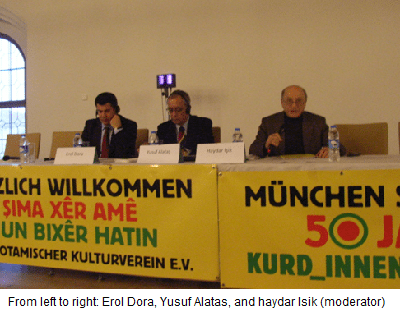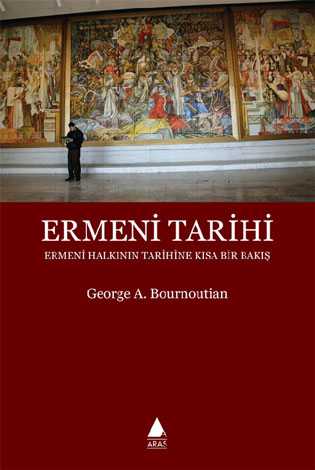It is hoped that the piepline will start pumping gas to Europe by 2014 [EPA]
The European Union has just signed an agreement with Turkey, Azerbaijan, Georgia, and Egypt in a bid to press ahead with a gas pipeline that would reduce its reliance on Russian energy. That shows the determination on the part of EU to end Europe’s energy dependence on Russia.
Mirek Topolanek, the Czech prime minister, said the aim to open up a “southern corridor” for supplies was “not just a one-way street for pipelines…We envisage this as a new silk road where we’ll see the flow of information, goods, people and energy in both ways.” () (Aljazeera, MAY 08, 2009)
“Two suppliers — Azerbaijan and Egypt — and two key transit states — Turkey and Georgia — agreed to give “the necessary political support,” and, where possible, “technical and financial assistance” to the construction of planned pipelines and transport routes needed to bring gas from the Caspian Basin region and the Middle East to the European market.”
(RADIO FREE EUROPE, Antoine Blua, May 08, 2009)
Here is the text of this important declaration ushering in a new age of energy diplomacy:
***
DECLARATION: SOUTHERN CORRIDOR
Prague Summit, May 8, 2009
We, the Participants of the Southern Corridor Summit held in Prague on the 8th of May 2009;
express our political support to the realization of the Southern Corridor as an important and mutually beneficial initiative, which will lead to the promotion of common prosperity, stability and security of all countries involved;
understand the Southern Corridor as an area of mutual interest providing opportunities for cooperation of the various entities in our public and private sectors. The trigger but not the sole focus of this process of strengthening relations among the Southern Corridor countries will be enhancing our mutually beneficial energy cooperation, which has the potential to serve as a cornerstone for the overall cooperation among countries involved;
acknowledge that infrastructure projects which interconnect the countries along the Southern Corridor will act as a catalyst for further co-operation in other areas. The successful cooperation in the field of energy will encourage investments also in transport area. The development of transport infrastructure, including for energy, will lead to an intensification of people-to-people contact, which is the fundamental prerequisite to further social, economic and political cooperation in the whole region;
intend to overcome the main remaining commercial and non-commercial obstacles by coordinating on common progressive strategy, individual commitments of the countries concerned, namely energy producer, transit and consumer countries, and clear scheduling for the completion and functioning of concrete energy and transport projects to be realized and operated within the Southern Corridor, including the Trans-Caspian energy transportation projects;
consider the Southern Corridor concept as a modern Silk Road interconnecting countries and people from different regions and establishing the adequate framework, necessary for encouraging trade, multidirectional exchange of know-how, technologies and experience.
We consider
The Southern Corridor concept as a synergy of the following documents:
– the Partnership and Co-operation Agreements between the EU and Azerbaijan, the EU and Georgia, the EU and Kazakhstan, and the EU and Uzbekistan;
– the Association Agreement between the EU and Turkey and the EU and Egypt;
– the European Neighbourhood Policy, including the Action Plans, the Eastern Partnership, EU-Central Asia Strategy and the Black Sea Synergy;
– the Memoranda of Understanding on strategic energy partnership between the EU and Egypt , EU and Kazakhstan, EU and Turkmenistan and EU and Azerbaijan;
– the Declaration of the Budapest Nabucco Summit of 27 January 2009;
– the Declaration of the Sofia Energy Summit of 24-25th April 2009;
– The Baku Initiative and the Energy Road Map endorsed on the occasion of the Astana Ministerial Conference of 30 November 2006;
– The Baku Energy Summit Declaration of 14th November 2008;
– The Ministerial Statement on the Nabucco gas pipeline project of 26th June 2006;
– Agreements on transportation of oil and gas through the Baku-Tbilisi-Ceyhan and Baku-Tbilisi-Erzurum oil and gas pipelines of 1999 and 2001 respectively;
– Agreement among the Republic of Turkey, the Hellenic Republic and Italian Republic concerning the development of the Turkey, Greece, Italy Transportation Corridor of 26 July 2007 in Rome;
– the European Council Conclusions of 8-9 March 2007, 16 October 2008 and 20th March 2009;
– the European Commission’s Second Strategic Energy Review of 13 November 2008;
– Decision No 1364/2006/EC of the European Parliament and of the Council concerning trans-European energy networks (TEN-E);
– Commission Decision granting financial aid for an action of 2.12.2008 in the field of the trans-European energy networks (TEN-E);
– the EU-financed INOGATE technical feasibility studies on the Trans-Caspian-Black Sea Gas Corridor as well as the feasibility study on the Caspian Development Corporation (CDC);
– the European Commission’s Communication on the extension of the major trans-European transport axes to the neighbouring countries, of 31 January 2007;
– the transport cooperation and initiatives involving the EU and the countries of the Southern Corridor ;
– And bearing in mind international treaties and obligations, including those arising from the Energy Charter Treaty, the Energy Community Treaty as well as the existing bilateral and multilateral agreements fostering the development of projects of the Southern Corridor;
We declare
That the concept for the Southern Corridor is complementary to other existing energy and transport partnerships and projects of the EU and is open for the participation and contribution of third countries on a case-by-case basis in concrete projects, upon agreement of all the Parties to this declaration directly involved.
That one of the basic prerequisites for developing the Southern Corridor is cooperation to establish interconnections starting with direct energy and transport links among the countries concerned as appropriate. We therefore agree to promote a common initiative to develop the conditions necessary for more effective transportation networks, including of energy resources, goods and people as well as an improved exchange of know-how and technologies within the Corridor with the participation of all the interested countries, international political conditions permitting. This should make the maximum use of the existing regional initiatives on energy and transport.
On the basis of declared principles in the field of energy we,
agree to give necessary political support and, where possible, technical and financial assistance to the construction of the Southern Corridor, including the Trans-Caspian energy transportation projects, in order to support the diversification of energy sources, markets and transport routes, which will not only enhance the energy security of the participating countries , but also will simultaneously constitute fair and profitable opportunities for energy producers, consumers and transit countries, while recognizing the need for this to be feasible, economically competitive, technically and environmentally sustainable and timely.
welcome transparency, competitiveness, long term predictability and stable regulatory conditions to underpin the realization of concrete infrastructure projects in the framework of the Southern Corridor. This should include
* firstly, the means to provide producers with reliable commitments of the consumers on their aggregate demand and the identification of non- committed natural gas and oil volumes by producer countries that can be dedicated specifically to the EU as well as the Corridor countries markets with a precise timetable for their availability on the basis of their commercial profitability;
* secondly, the establishment of necessary and appropriate transit and environmental arrangements in line with the Parties’ international commitments;
* thirdly, the need for companies to ensure direct, industry-standard commercial agreements between producers and consumers.
envisage a mechanism for aggregating sufficient volumes to be transported through the Southern Corridor, and, take note of the feasibility study on the Caspian Development Corporation initiative that should lead to concrete proposals in this respect. In this context, eventually consider devoting, as appropriate, public and private financial resources necessary for the realization of the Southern Corridor, including encouraging the market-based participation of public and private companies.
attain the energy security of all parties including consumer and transit states, such as Turkey, Georgia and Azerbaijan, on the basis of commercial agreements that are in line with the Parties’ international commitments.
welcome that the countries concerned will endeavor to:
– implement a clear, transparent, cost-based, stable and non-discriminatory transportation regime for natural gas or oil across the territories of the Corridor countries to end consumer markets, in line with the Parties’ international commitments.
– establish direct connections between both sides of the Caspian Sea as one of the main important elements of the effective energy cooperation and favour the interconnection of the Southern Corridor with the EU through strategic infrastructure projects necessary for carrying natural gas by pipelines or ships. In the gas sector, interconnection will be established among others through the Nabucco project and the ITGI project both of which are financially supported in the EU Recovery Plan endorsed by the European Council of March 2009 as well as other projects within the Corridor. In the oil sector, an extension of the already operating transportation system between Kazakhstan and Azerbaijan could be developed in the Mediterranean and the Black Sea regions, taking into account the constrains of the Turkish straits.
– promote the activities of public and private companies that are involved or willing to participate in the realization of the Trans-Caspian energy link.
– achieve maximum energy efficiency and use of renewable energies as an important element for successful cooperation in the field of energy.
Therefore, we express our readiness to share technologies, knowledge and know-how in order to reach efficient fuel use and further development of alternative energy sources to allow long-term and sustainable growth for all Corridor countries;
– share technologies, knowledge and know-how for the development of energy resources, their transportation and technical upgrading within the Corridor.
In the field of transport we endeavour,
To support the promotion of regional and cooperative approaches to transport challenges in the Southern Corridor, which includes appropriate projects in the Mashreq, in particular Egypt and Iraq.
To intensify cooperation in view of promoting the implementation of relevant infrastructure projects and of policy measures to facilitate exchanges, to support efforts to make transport projects within the Southern Corridor an effective and responsive instrument of cooperation and enhancing public-private partnerships and other ways of attracting investments.
To implement the extension of transport trans European Networks to Turkey and South Caucasus and beyond to Central Asia along the Southern corridor, including connections to the Middle East.
To encourage, with respect to high importance of railway transport in economies of Corridor countries, all parties involved to further develop the strategic railway networks and their interoperability. In this regard we support the railway and maritime corridor connecting the Caspian Sea Region with the EU, as well as a roll-on roll-off ferry connections between the EU and the relevant countries of the Southern Corridor, including Georgia.
To share technologies, knowledge and know-how for technical upgrading of transport facilities within the Corridor in order to increase the transport efficiency.
To harmonize technical norms and standards, ensure transparent and competitive tariffs, and to simplify custom procedures and border crossing in order to ensure fluent movement of all kinds of goods as a basic condition for deepening of trade among the involved countries.
In the field of overall cooperation we agree,
That strengthening of mutual relations must go hand in hand with following principles: transparency, non-discrimination , market economy and commercial profitability.
To favour stable regulatory framework ensuring clear and predictable investment environment, which contributes to mutual trust necessary for successful realization of all strategic projects within the Southern Corridor.
With respect to implementation and follow-up, we agree to strongly support the following steps:
On energy:
* The European Commission, together with the Council of the EU and the signatory partner countries, will monitor the implementation of this declaration and, in particular, work on developing an Action Plan seeking the implementation of the necessary conditions and the
appropriate supporting measures for the Southern Corridor.
* For the EU Member States concerned and Turkey to finish the negotiations of the intergovernmental agreement on Nabucco as quickly as possible, to sign it by the end of June 2009 in Turkey, and to continue to support the necessary steps for its implementation inter alia by identifying gas volumes available for marketing in the EU and Turkey.
* For the EU Member States concerned and the relevant countries to progress further on the timely realisation of the ITGI project.
* For the EU and the concerned countries to conclude the feasibility study on the Caspian Development Corporation initiative by the end of 2009 in view of the possible identification of relevant actions for the implementation.
* For the EU and Iraq to sign an MoU on Energy as soon as possible, and for the EU and Egypt to cooperate and agree on specific projects in developing Egypt’s gas reserves and export potential for the EU, including via the Southern Corridor and encouraging energy investment, transfer of know-how for this purpose.
On transport
* To cooperate on the objective of promoting the extension of the trans-European transport networks to the countries of the Southern Corridor;
* To work on developing an action plan on possible additional appropriate measures, including safety and security, to facilitate transport and transit flows along the Southern Corridor;
* To work on a list of priority projects and policy measures for the development of the Southern corridor, and attract funds to implement them.
Done and signed in Prague on 8th May 2009 in the presence of the representatives of Kazakhstan, Turkmenistan and Uzbekistan.
For the EU,
H.E. Mirek Topolánek, President of the European Council
H.E. Jose Manuel Barroso, President of the European Commission
For the Republic of Azerbaijan,
H.E. Ilham Aliyev, President of the Republic of Azerbaijan
For the Republic of Georgia,
H.E. Mikheil Saakashvili, President of Georgia
For the Republic of Turkey,
H.E. Abdullah Gül, President of Turkey
For the Arab Republic of Egypt,
H.E. Sameh Fahmy, Minister of Petroleum of the Arab Republic of Egypt
***
00000000000000000
|
|
|
The European Union has signed an agreement with four countries in a bid to press ahead with a gas pipeline that would reduce its reliance on Russian energy.
Azerbaijan and Egypt, which can both supply gas, and Turkey and Georgia, which are able to carry it, signed up to the Nabucco gas pipeline scheme on Friday at a meeting in Prague, capital of the Czech Republic.
In return for their commitment to supply gas to Europe, the EU offered to provide more trade and stronger transport links to the gas producers and transit countries involved.
Three key nations – Kazakhstan, Turkmenistan and Uzbekistan – refused to sign the text, diplomatic sources told the AFP news agency.
‘New silk road’
Mirek Topolanek, the Czech prime minister, said the aim to open up a “southern corridor” for supplies was “not just a one-way street for pipelines.”
He said: “We envisage this as a new silk road where we’ll see the flow of information, goods, people and energy in both ways.”
Representatives from the United States, Russia and Ukraine also attended the summit as observers to the agreement.

Iraq, which was also invited to the meeting, did not send any officials.
The summit was called to help kick-start the Nabucco pipeline, which would link the EU to gas rich nations on and beyond the Caspian Sea, bypassing Russia and Ukraine.
The pipeline, which once completed would stretch 3,300km from Turkey to Austria, could transport up to 31bn cubic metres of gas each year to western Europe.
It is hoped that it will start pumping gas to Europe by 2014.
The EU is keen to speed up the construction of the pipeline after a dispute between Russia and Ukraine in January over gas prices left large areas of Europe without supplies of the resource for two weeks. |







